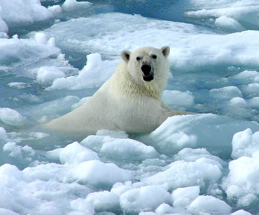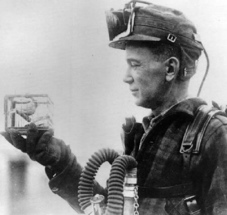We haven’t cracked into it yet, but I got Linette a copy of author Michael Pollan’s “The Omnivore’s Dilemma” for Christmas. I suspect a great deal of time this week will be spent trying to reconcile what we read in it with what we just read in the “Economist”. (What, the rest of you don’t gather the family together and read the “Economist” on Christmas morning?) Here’s a clip:
…This partly explains why food bought from local producers either directly or at farmers’ markets is growing in popularity, and why local-food advocates are now the keepers of the flame of the food-activism movement. Local food need not be organic, but buying direct from small farmers short-circuits industrial production and distribution systems in the same way that buying organic used to. As a result, local food appears to be immune to being industrialised or corporatised. Organic food used to offer people a way to make a “corporate protest”, says Mr Pollan, and now “local offers an alternative to that.”
Buying direct means producers get a fair price, with no middlemen adding big margins along the distribution chain. Nor has local food been shipped in from the other side of the country or the other side of the world, so the smaller number of “food miles” makes local food greener, too. Local food thus appeals in different ways to environmentalists, national farm lobbies and anti-corporate activists, as well as consumers who want to know more about where their food comes from.
Obviously it makes sense to choose a product that has been grown locally over an identical product shipped in from afar. But such direct comparisons are rare. And it turns out that the apparently straightforward approach of minimising the “food miles” associated with your weekly groceries does not, in fact, always result in the smallest possible environmental impact.
The term “food mile” is itself misleading, as a report published by DEFRA, Britain’s environment and farming ministry, pointed out last year. A mile travelled by a large truck full of groceries is not the same as a mile travelled by a sport-utility vehicle carrying a bag of salad. Instead, says Paul Watkiss, one of the authors of the DEFRA report, it is more helpful to think about food-vehicle miles (ie, the number of miles travelled by vehicles carrying food) and food-tonne miles (which take the tonnage being carried into account).
The DEFRA report, which analysed the supply of food in Britain, contained several counterintuitive findings. It turns out to be better for the environment to truck in tomatoes from Spain during the winter, for example, than to grow them in heated greenhouses in Britain. And it transpires that half the food-vehicle miles associated with British food are travelled by cars driving to and from the shops. Each trip is short, but there are millions of them every day. Another surprising finding was that a shift towards a local food system, and away from a supermarket-based food system, with its central distribution depots, lean supply chains and big, full trucks, might actually increase the number of food-vehicle miles being travelled locally, because things would move around in a larger number of smaller, less efficiently packed vehicles.
Research carried out at Lincoln University in New Zealand found that producing dairy products, lamb, apples and onions in that country and shipping them to Britain used less energy overall than producing them in Britain. (Farming and processing in New Zealand is much less energy intensive.) And even if flying food in from the developing world produces more emissions, that needs to be weighed against the boost to trade and development.
There is a strand of protectionism and anti-globalisation in much local-food advocacy, says Gareth Edwards-Jones of the University of Wales. Local food lets farming lobbies campaign against imports under the guise of environmentalism. A common argument is that local food is fresher, but that is not always true: green beans, for example, are picked and flown to Britain from Kenya overnight, he says. People clearly want to think that they are making environmentally or socially optimal food choices, he says, but “we don’t have enough evidence” to do so.
What should a shopper do? All food choices involve trade-offs. Even if organic farming does consume a little less energy and produce a little less pollution, that must be offset against lower yields and greater land use. Fairtrade food may help some poor farmers, but may also harm others; and even if local food reduces transport emissions, it also reduces potential for economic development. Buying all three types of food can be seen as an anti-corporate protest, yet big companies already sell organic and Fairtrade food, and local sourcing coupled with supermarkets’ efficient logistics may yet prove to be the greenest way to move food around.
Food is central to the debates on the environment, development, trade and globalisation–but the potential for food choices to change the world should not be overestimated. The idea of saving the world by shopping is appealing; but tackling climate change, boosting development and reforming the global trade system will require difficult political choices. “We have to vote with our votes as well as our food dollars,” says Mr Pollan. Conventional political activity may not be as enjoyable as shopping, but it is far more likely to make a difference.
Some of it’s no doubt bullshit… like the part about it being better for the environment to truck in tomatoes from Spain during the winter than growing them in England, inside heated greenhouses. No shit. But, that’s not the only other possibility. What about not eating tomatos in winter, or, better yet, canning them when they’re in season? Still, I think the article is worth considering. At the very least, I think the article helps to remind us all that buying local isn’t in itself a cure for all of our ills. And that’s probably a good thing.














